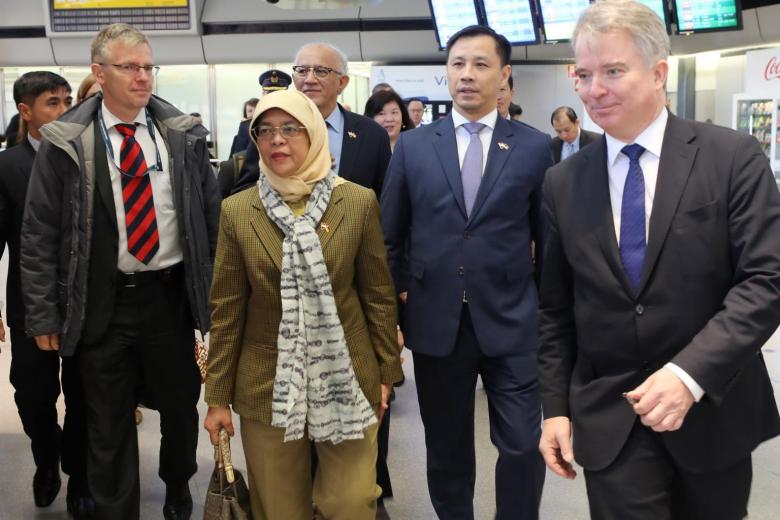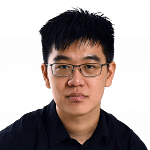BERLIN - A stronger Singapore-Germany partnership is important in the current climate of global economic uncertainty, said President Halimah Yacob on Monday (Dec 9).
And this partnership must be able to navigate such major upheavals as the US-China trade tensions, disruptive technologies and pushback against globalisation in some countries because of the unequal outcomes it creates, she noted in a speech to business leaders of both countries.
"The challenge is thus to develop a 'future-ready' and 'people-centric' partnership," she added.
This future-ready partnership must, among other things, be based on mutual trust, she said and added: "Germany has proven to be a trusted partner in Singapore's nation-building journey."
The President was speaking at a ceremony for the signing of nine memorandums of understanding (MOUs) and agreements to help deepen collaboration across various sectors, including education and technology.
Held at the House of the German Economy in Berlin, it heralds the start of her five-day state visit to Germany, the first by a President of Singapore.
She and her husband, Mr Mohamed Abdullah Alhabshee, had arrived in Berlin on Monday morning.
Delegations from the Singapore Business Federation and Enterprise Singapore are visiting Germany in conjunction with the state visit, with each agency signing an MOU with its German counterpart.
Enterprise Singapore's agreement with technology industry organisation Munich Network, for instance, will give Singapore companies and start-ups direct access to German companies and a better understanding of their needs.
Members of Munich Network include global giants Airbus, Bosch and Siemens.
"There are also a lot of complementary areas for co-innovation between companies from both countries, as Germany is strong in hardware and Singapore in software," said Mr Clarence Hoe, Enterprise Singapore global markets director of the Americas and Western Europe.
President Halimah said such initiatives will further ease the flow of goods and services, capital, entrepreneurship, ideas and data between the two countries.
"But that is not enough. We need to also focus on our peoples," she added. "(That) means an emphasis on helping our respective workforce adopt and adapt to Industry 4.0 practices."
Industry 4.0 refers to a new phase in the Industrial Revolution that focuses heavily on interconnectivity, automation, machine learning and real-time data, and one of its core technologies is AI or artificial intelligence.
President Halimah will have a close look of it when she visits engineering and technology giant Bosch's Internet of Things campus on Monday evening.
Six MOUs that are to be signed feature Singapore's Institute of Technical Education, including one with Bosch for mutual training attachments.
In all, 14 MOUs and agreements will be inked to promote co-innovation, internships and vocational exchanges, the President noted.
"This 'people-centric' approach will equip our people with necessary and practical lifelong skills to plug into the digital economy and beyond," she added.
On Tuesday, President Halimah will meet her German counterpart Frank-Walter Steinmeier as well as German Chancellor Angela Merkel.


